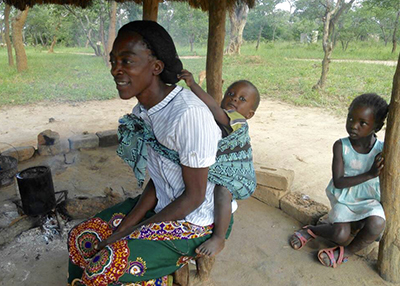Study on Traditional Parenting and Child Care Practices in Zambia: Final Report
 The first years of a child’s life are crucial for their cognitive, emotional, social, behavioral, and physical development. Recognizing the importance of early childhood development (ECD), the Zambian government has committed to scaling up ECD programs that support health, nutrition, and early learning/stimulation for children.
The first years of a child’s life are crucial for their cognitive, emotional, social, behavioral, and physical development. Recognizing the importance of early childhood development (ECD), the Zambian government has committed to scaling up ECD programs that support health, nutrition, and early learning/stimulation for children.
Research shows that children need safe and healthy environments, sensitive and responsive caregivers, opportunities to develop oral language and communication skills, support for social-emotional development, and positive and respectful guidance to develop optimally. Because of this, an understanding of the traditional cultural context in which children develop is critical not only to ensure child-sensitive and responsive programs but also to foster optimal and healthy child development through harnessing local resources.
UNICEF partnered with AIR and researchers from the University of Zambia to gather data on traditional parenting and child care practices across diverse cultures in Zambia and assess these data against current scientific evidence of ECD to determine which traditional parenting practices may contribute or be detrimental to children’s development. The researchers conducted interviews and focus groups respondents with mothers, fathers, other caregivers (neighbors, aunties, grandparents, and other relatives), community leaders, and service providers.
Select Study Findings
- Play and games are encouraged and seen as key ways in which Zambian children learn, including local games, free play, and technology (television and radio). Respondents particularly emphasized the importance of play with a purpose: using play to teach children income-generating activities such as planting and harvesting crops, milking cows, cooking, fishing, basket weaving, carving, chores, and fixing things.
- Reading is seen as an essential skill for everyday life, though many caregivers reported being illiterate; if parents can’t help children with schoolwork, siblings and neighbors will step in.
- While some respondents indicated that reliance in traditional medicine has declined in recent years, some still reported seeking traditional healers and attempting home remedies with herbs or leaves before taking children to a clinic. Traditional medicinal practices include bathing a baby without soap and having the baby drink the bathwater to prevent illness and evil spirits.
- Corporal punishment is reportedly commonplace for disciplining children over two years old. Examples include beating, whipping, spanking, burning, and withholding food. Some parents feel that “children’s rights” discourse has infringed on their parenting and leads to undisciplined children.
- “Good” or “ideal” child behavior includes being obedient, being able to run simple errands, respecting adults and elders, not talking back, and not making too much noise. Also important is the ability to share, cooperate, and play well with others.
These findings will inform the development or adaptation of parent education and support services and ultimately ensure these services leverage existing traditional practices that promote the healthy physical, cognitive, and social-emotional development of children.
